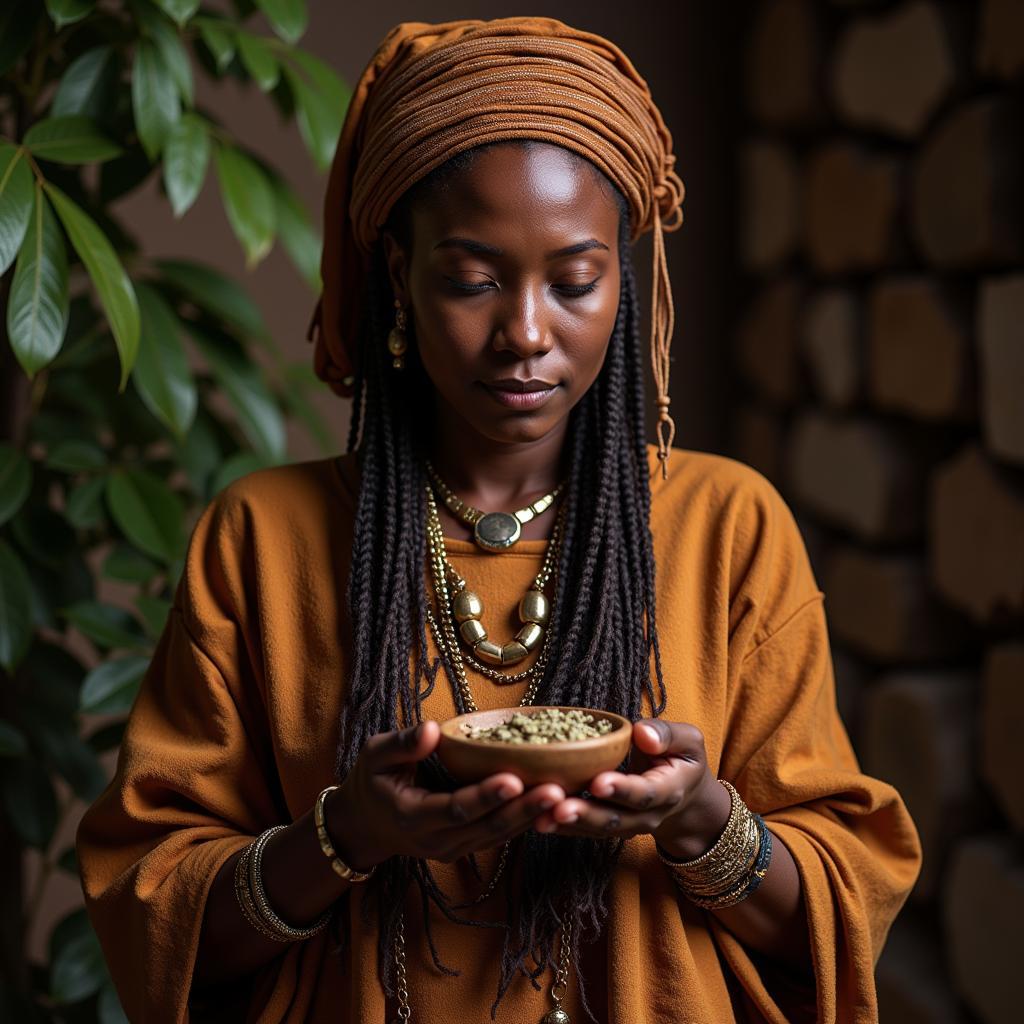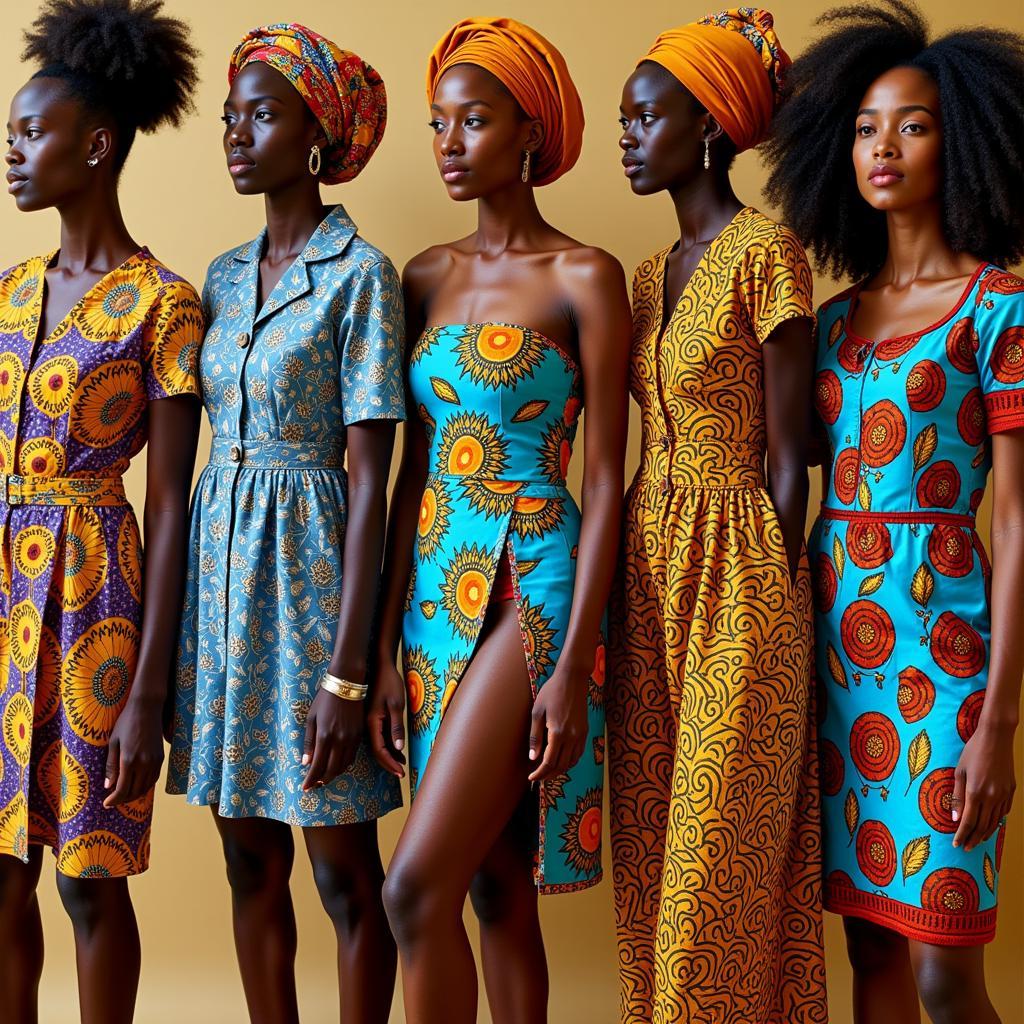Exploring Traditional African Boats and Their Cultural Significance
The vast and diverse African continent boasts a rich maritime history, with traditional boats playing a vital role in transportation, fishing, and cultural practices for centuries. These vessels, crafted using indigenous knowledge passed down through generations, offer a glimpse into the ingenuity and adaptability of African communities.
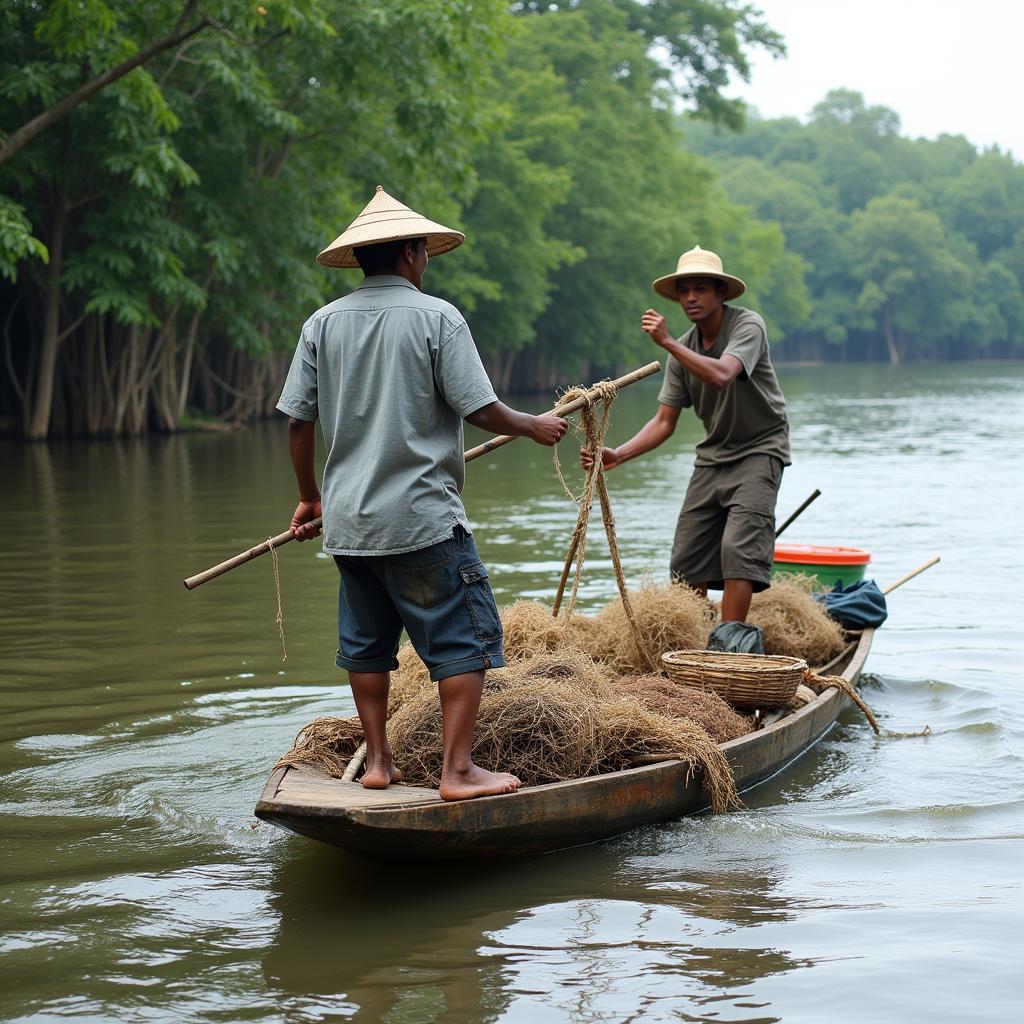 Traditional African fishing boat on the river
Traditional African fishing boat on the river
Diverse Designs and Uses of African Boats
From the winding rivers of the Congo Basin to the expansive coastlines of Senegal and Madagascar, African boats exhibit a remarkable array of designs, each adapted to the specific environmental conditions and cultural needs of the region.
Dugout Canoes: A Testament to Ancient Craftsmanship
One of the most ubiquitous types of traditional African boats is the dugout canoe, carved from a single tree trunk. These canoes, found across the continent, vary in size and shape, reflecting their diverse functions. In the Okavango Delta of Botswana, for instance, the indigenous Bayei people navigate the shallow waterways in sleek, maneuverable dugouts called “mekoro,” expertly crafted from the trunks of large trees like sausage trees and jackalberries.
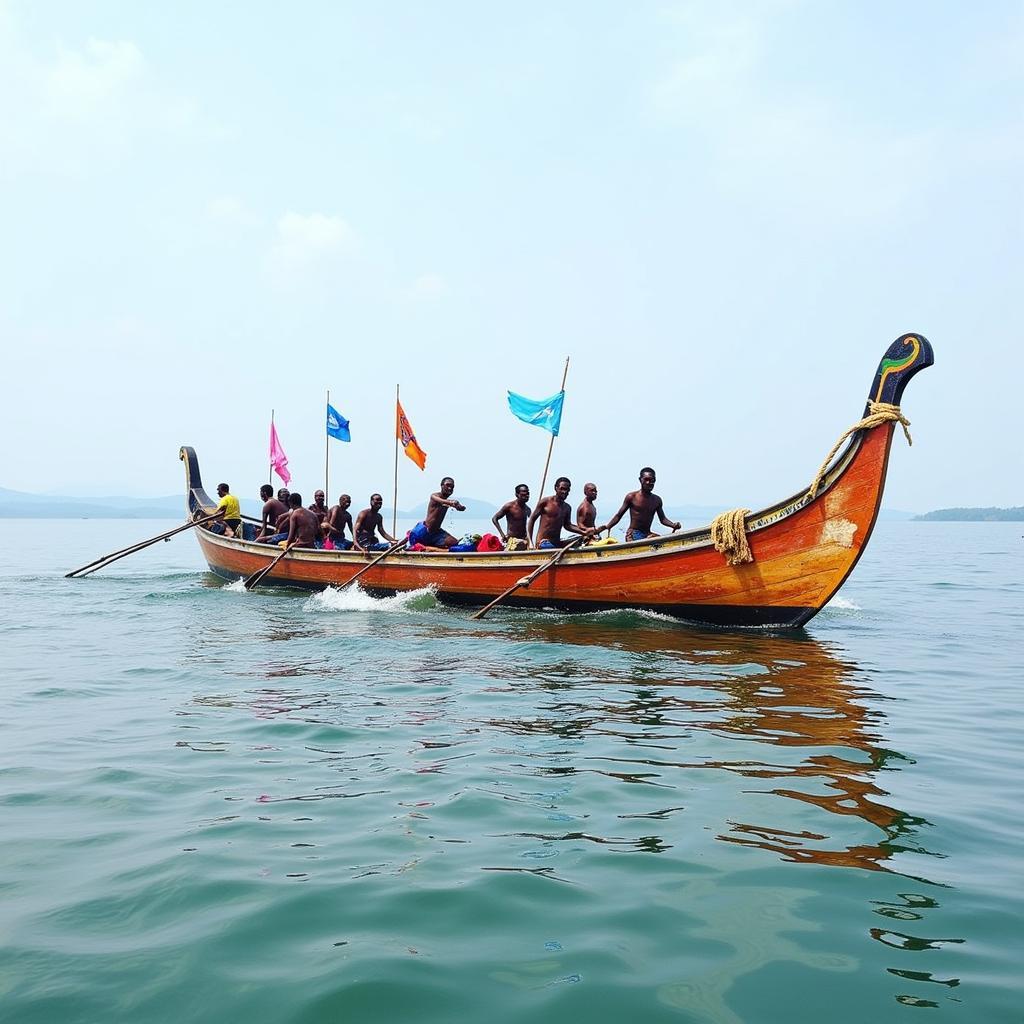 Ceremonial African boat on Lake Volta
Ceremonial African boat on Lake Volta
Sailing Dhows: Navigating the Indian Ocean Trade Winds
Along the East African coast, the influence of Arab traders brought about the adoption of the dhow, a lateen-rigged sailing vessel. These sturdy boats, constructed with wooden planks sewn together with coconut fibers, played a pivotal role in the bustling Indian Ocean trade, transporting goods like spices, ivory, and textiles between Africa, the Middle East, and Asia.
Reed Boats: Embracing Sustainable Materials
In regions where trees are scarce, communities have ingeniously crafted boats from readily available materials like reeds. On Lake Titicaca, straddling the border of Peru and Bolivia, the Uros people construct remarkable floating islands and boats from totora reeds, demonstrating a deep understanding of their environment and sustainable living practices.
The Cultural Significance of Boats in Africa
Beyond their practical applications, traditional African boats hold deep cultural and spiritual significance in many communities.
Boats in Rituals and Ceremonies
In some cultures, boats feature prominently in rituals and ceremonies, symbolizing the journey of life, death, and the afterlife. For example, among the Dogon people of Mali, intricately carved wooden boats represent the vessels that carry the souls of the deceased to the spirit world.
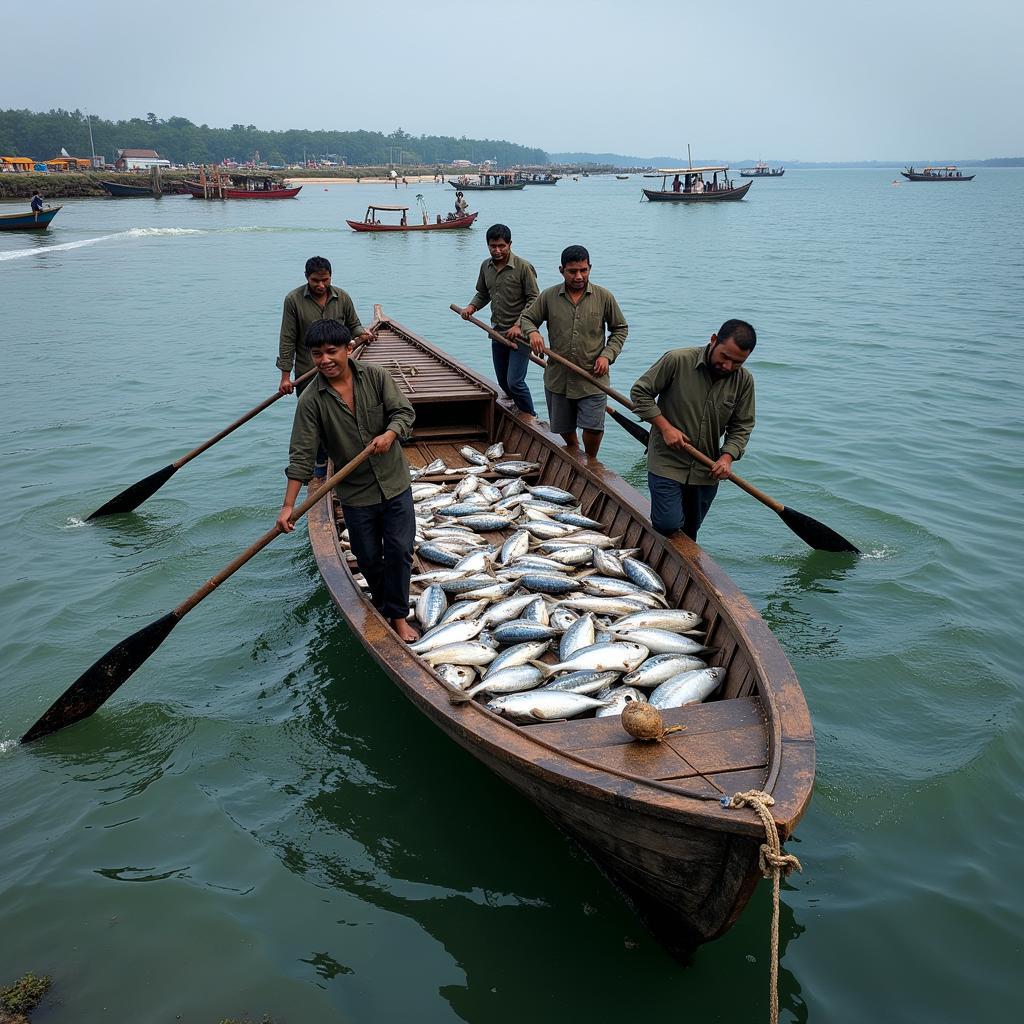 African fishermen returning with their catch
African fishermen returning with their catch
Fishing and Economic Sustenance
Fishing, often carried out using traditional boats, plays a vital role in the livelihoods and food security of countless African communities. In coastal regions and along major rivers and lakes, fishing provides a source of income, sustenance, and cultural identity.
Preserving Traditional Boat Building Knowledge
As modern materials and boat-building techniques become more widespread, there is a growing need to preserve the traditional knowledge and craftsmanship associated with African boats. Efforts are underway in various countries to document these techniques, support local boat builders, and raise awareness about the cultural importance of these vessels. By understanding and appreciating the diversity and ingenuity of African boats, we gain a deeper understanding of the continent’s rich maritime heritage and the enduring connection between people, water, and culture.

